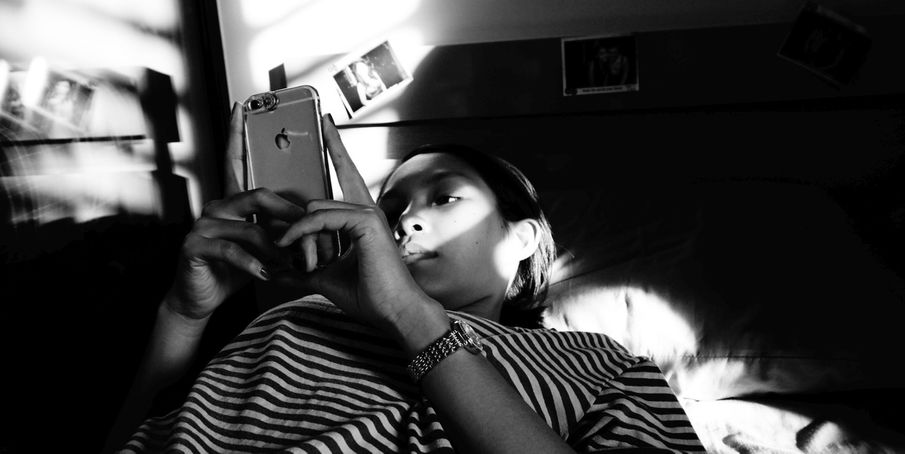The Children’s Society estimates that more than 100,000 children aged 14 in the UK are self-harming following survey results
The survey, which involved 11,000 children, found that 9% of boys and 22% of girls had self-harmed at some point in the year before.
The most shocking finding however, was that rates of self-harm were worst among children who were attracted to people of the same, or both genders, with nearly 50% reporting self-harm.
Responding to this, a Stonewall spokesperson said: “We know that LGBT young people are disproportionately affected by mental health issues, and some of this is because of the way they are treated at school.
“Almost half of all LGBT pupils (45%) still face bullying at school for being themselves. When bullying is not tackled it can have a deeply damaging and long-lasting effect on young people.
“We would encourage schools who want to help support LGBT students to ensure that there are no tolerance policies on this specific type of bullying. Parents should also make sure they talk to their children about differences at home, and teach them to support and accept others.
“Stonewall works with teachers and local authorities across England, Scotland and Wales to address anti-LGBT discrimination and create more welcoming environments where all young people feel able to be themselves.”
Chief Executive at The Children’s Society, Matthew Reed said: “It is deeply worrying that so many children are unhappy to the extent that they are self-harming.
“Worries about how they look are a big issue, especially for girls, but this report shows other factors such as how they feel about their sexuality and gender stereotypes may be linked to their unhappiness.”
Today’s shocking figures from our latest Good Childhood Report.
— Children's Society (@childrensociety) August 29, 2018
We all need to do more to make sure every child feels happy and included.
View the reports findings > https://t.co/jl8BriMT0V pic.twitter.com/hDT8SOOMa0
The report also included a survey of children aged 10 - 17 and their parents across 2,000 households, which found that children are most concerned about school and their appearance.
24% of children said that they heard jokes or comments about other people’s bodies or appearance all the time, while 22% of those in secondary school said similar comments were often made about students’ sexual activity.
The survey found that both situations made girls feel much worse about their appearance and less happy with their life as a whole.
Natasha Devon MBE, a mental health campaigner who regularly works with young people in schools, said that while the figures were upsetting, they were not surprising.
With 14 being the average age at which most mental health difficulties appear, she said: “There is a spike in [the brain chemical] dopamine [at that age] which makes people more prone to risk-taking and there are a lot of hormones. It’s a crucial stage in a young person’s neurological development.”
Putting some of the blame on austerity, Devon said: “The world is just a more difficult place to navigate… You can see a sharp rise in mental health conditions such as anxiety and self-harm since 2010 and that is when austerity began.”
‘Resilience isn’t an attitude you can choose to switch on or off. It is something which arises when you are well supported’. @_NatashaDevon on @GMB this morning discussing #selfharm & #mentalhealth in young people 👊🏼 pic.twitter.com/Q2RpKTc5OJ
— MH Media (@MHMediaCharter) August 29, 2018
Devon also believes the greater emphasis exams in education plays a part. “We lost things such as… sport, art and music in school. It’s interesting that there is a higher prevalence [of self-harm] among girls.
“It is to do with the ways girls and boys are socialised - girls are taught anger is unacceptable and boys are taught showing distress is unacceptable.”
According to the NSPCC, the common reasons for self-harm include:
- Depression
- Bullying
- Pressure at school
- Emotional abuse
- Grieving
- Having relationship problems with family or friends
While the feelings that these issues bring up include:
- Low self-esteem and low confidence
- Loneliness
- Sadness
- Anger
- Numbness
- Lack of control over their lives
Reed said: “Issues like appearance, gender stereotypes and sexuality should be included in the new relationships and sex education curriculum.”
President of the Labour Campaign for Mental Health, Luciana Berger MP said: “These shocking statistics on self-harming among children show the extent of the mental health crisis in our country.
“Children in Britain urgently need more mental health support but the children and young people’s mental health green paper lacked the ambition needed to solve this crisis. The government’s continued disregard for early intervention and prevention is failing a generation.”
Read the full report.
Read more about the latest government plans, including Mental Health Support and Education In Schools: Why Experts Are Concerned and UK Government Announces Action Plan to Improve Lives of LGBT People.
To find a counsellor near you, visit Counselling Directory.


Comments